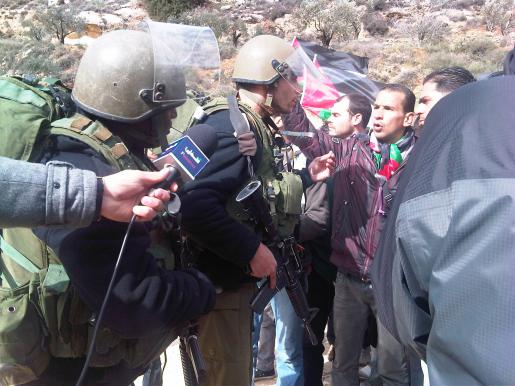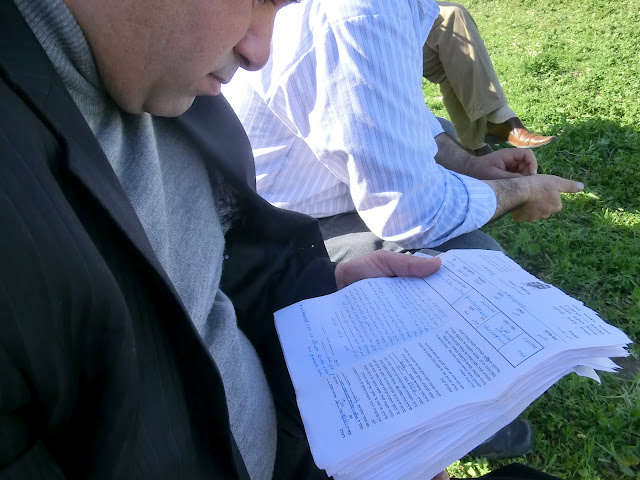-
Settlers attack demo in Qaryut
10 February 2012 | Popular Struggle Coordination Committee Demonstrators in Qaryout attempted to plant olive trees to resist land grab. On the way, they were attacked by settlers and the army. Approximately 100 residents of the Qaryout joined the weekly protest against the occupation this week, aiming to plant olive trees on their lands, as […]
-
Tubas: Israel robs the Jordan Valley dry
by Jonas Weber 8 February 2012 | International Solidarity Movement, West Bank On Saturday 5 February a delegation of activists from the International Solidarity Movement (ISM) went on a tour in the municipality of Tubas, 30 minutes by car to the south east of Nablus. At the municipality building of Tubas we were greeted by Marwan E. Toubassi, […]
-
Palestinians demand justice: 52 days and Khader Adnan is dying to live
by Aaron 7 February 2012 | International Solidarity Movement, West Bank On Monday and Tuesday Palestinians rallied for Khader Adnan and all political prisoners before regional offices of the Red Cross, demanding that the organization takes a solid stand for the rights of more than 5000 Palestinian prisoners and detainees held in Israeli prisons. TAKE […]
Action Alert An Nabi Saleh Apartheid Wall Arrests BDS Bethlehem Bil'in Cast Lead Demonstration Denial of Entry Ethnic Cleansing Farmers Gaza Global Actions Hebron House Demolition International law Israeli Army Jerusalem Live Ammunition Nablus Ni'lin Prisoner Ramallah Rubber-coated steel bullets Settlement Settlers Settler violence Tear-Gas Canister Video



